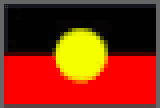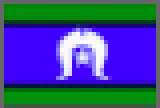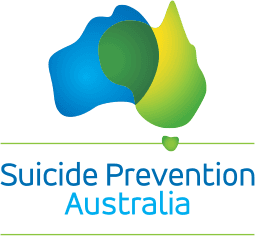Depression Anxiety Stress Scales DASS-21
Depression Anxiety Stress Scales DASS-21 overview
Creator and Context
The Depression Anxiety Stress Scales (DASS-21) is a set of three self-report scales designed to measure the emotional states of depression, anxiety, and stress. It consists of 21 items, each reflecting a specific aspect of distress over the past week. The DASS-21 is widely recognised for its ability to quantitatively assess these emotional states along continua, rather than providing categorical diagnoses.
The DASS-21 was developed by Syd Lovibond and Peter Lovibond at the University of New South Wales in 1995. It was designed as a shorter version of the original 42-item DASS, with the aim of efficiently assessing the core symptoms of depression, anxiety, and stress.
Presenting Conditions
The DASS-21 measures:
Depression: Dysphoria, hopelessness, devaluation of life, self-deprecation, lack of interest/involvement, anhedonia, and inertia.
Anxiety: Autonomic arousal, skeletal muscle effects, situational anxiety, and subjective experience of anxious affect.
Stress: Difficulty relaxing, nervous arousal, being easily upset/agitated, irritable/over-reactive, and impatient.
Administration
The DASS-21 is a self-report questionnaire that can be administered in a clinical setting or remotely. Respondents rate how much each statement applied to them over the past week on a 4-point Likert scale, ranging from 0 (Did not apply to me at all) to 3 (Applied to me very much, or most of the time).
Desired Audience
This scale is suitable for adults and adolescents and can be used in various settings including clinical practice, research, and community surveys.
The DASS-21 can be used to monitor symptom severity and treatment response over time. It is also valuable in research to measure the effectiveness of interventions.
Considerations
The DASS-21 is not diagnostic; it measures severity of symptoms.
Cultural and linguistic variations may affect responses.
It should be used as part of a comprehensive assessment.
How to score the Depression Anxiety Stress Scales DASS-21
Conducting the assessment
Each of the three scales contains 7 items. Scores for each item are summed, resulting in a total score for each of the Depression, Anxiety, and Stress scales. Respondents complete the questionnaire by indicating on a scale of 0-3 how much each statement applied to them in the past week. The assessment typically takes 5-10 minutes to complete.
Interpretation
Each of the three scales contains 7 items. Scores for each item are summed, resulting in a total score for each of the Depression, Anxiety, and Stress scales. These scores are multiplied by 2 to calculate the final score. Interpretation is based on standardized cutoffs:
Depression: Normal (0-9), Mild (10-13), Moderate (14-20), Severe (21-27), Extremely Severe (28+).
Anxiety: Normal (0-7), Mild (8-9), Moderate (10-14), Severe (15-19), Extremely Severe (20+).
Stress: Normal (0-14), Mild (15-18), Moderate (19-25), Severe (26-33), Extremely Severe (34+).
Scores on the DASS-21 are indicative of the severity of symptoms of depression, anxiety, and stress. They are not diagnostic but can guide clinical decision-making and treatment planning.
Clinical Considerations
Use DASS-21 scores as a guide to understand symptom severity.
Consider the individual's overall clinical presentation and history.
Use the scale regularly to monitor treatment progress.
Depression Anxiety Stress Scales DASS-21 use cases
Screening for symptoms of depression, anxiety, and stress in clinical and non-clinical populations.
Tracking changes in emotional states over time, particularly in response to therapeutic interventions.
Research studies examining the correlates of depression, anxiety, and stress.
Category
Anxiety
Research Summary
Lovibond, P. F., & Lovibond, S. H. (1995). The structure of negative emotional states: Comparison of the Depression Anxiety Stress Scales (DASS) with the Beck Depression and Anxiety Inventories. Behaviour Research and Therapy, 33(3), 335-343.
Antony, M. M., Bieling, P. J., Cox, B. J., Enns, M. W., & Swinson, R. P. (1998). Psychometric properties of the 42-item and 21-item versions of the Depression Anxiety Stress Scales in clinical groups and a community sample. Psychological Assessment, 10(2), 176-181.
Henry, J. D., & Crawford, J. R. (2005). The short-form version of the Depression Anxiety Stress Scales (DASS-21): Construct validity and normative data in a large non-clinical sample. British Journal of Clinical Psychology, 44(Pt 2), 227-239.
Other Assessment Guides
Clinical Outcomes in Routine Evaluation 10 CORE-10
Explore the Clinical Outcomes in Routine Evaluation 10 (CORE-10), an efficient tool for assessing and monitoring psychological distress. Ideal for clinicians and researchers, this guide covers its use in screening, tracking treatment progress, and evaluating therapy effectiveness.
Generalized Anxiety Disorder 7 Item Scale GAD-7
Explore the Generalized Anxiety Disorder 7 Item Scale (GAD-7), a vital tool for screening and measuring anxiety severity. Our guide covers its use, scoring system, and clinical implications, ideal for healthcare professionals and researchers in mental health.
Kessler Psychological Distress Scale K-10
Delve into our detailed guide on the Kessler Psychological Distress Scale (K-10), a crucial tool for assessing anxiety and depression symptoms. Learn about its creation, use, scoring, and interpretation, tailored for mental health professionals and researchers seeking effective distress screening methods.










